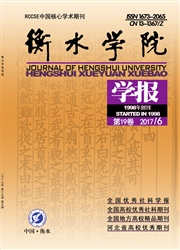

 中文摘要:
中文摘要:
农村地区的金融资源高度稀缺和对农户的金融约束已经被视为制约农村经济发展与农民收入提高的重要因素。改革开放以后为了缓解这种困境,农村地区开始了自发的金融合作尝试,国内相关研究文献主要关注于20世纪80年代兴起、在90年代末被取缔的农村合作基金会,以及2000年以后在农村合作组织内部自发产生并被作为开发式扶贫重要方式之一的农村互助资金合作社这两种具有代表性的金融合作形式。通过对国内相关主题研究的一些主要文献的梳理,了解到如何通过制度建设来实现农村金融合作组织的产权明晰、自主管理和有效监督始终是实践者与研究者所共同关注的重点,农村金融合作事业仍然处于一种制度建设与探索的阶段。
 英文摘要:
英文摘要:
Scarcity of the financial resources in rural regions is considered as one of the most important barriers in developing China's rural economy and increasing farmers' income.Autonomous financial cooperation in some rural areas has begun to appear in order to relieve such difficult position since the reform and opening up.The internal research literature mainly focuses on the rural cooperation fund which prospered in 1980s and was banned at the end of 1990s,as well as the rural financial commune which is one of the important methods to help the poor since 2000.This paper,through sorting out the main literature of relative theme,unerstands how to realize the clarification of property rights,autonomous management and effective supervision through the institution construction and rurual financial cooperation is still under the stage of institution construction and exploration.
 同期刊论文项目
同期刊论文项目
 同项目期刊论文
同项目期刊论文
 期刊信息
期刊信息
